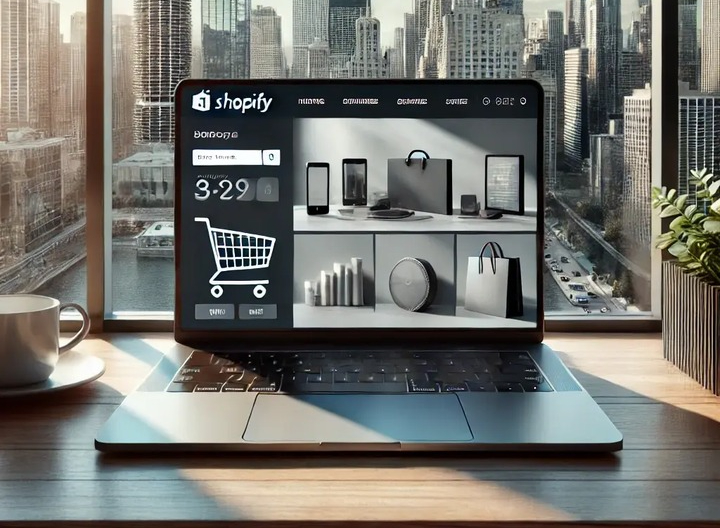Shopify vs BigCommerce: Key Differences You Should Know in 2025
In 2025, the eCommerce landscape continues to evolve, and two platforms stand out in the world of online retail: Shopify and BigCommerce. While both platforms cater to businesses looking to sell products online, their features, capabilities, and strengths differ, particularly when it comes to specific business needs such as B2B product personalization on BigCommerce and Shopify development in Chicago. This blog will compare Shopify and BigCommerce, shedding light on their differences and how they align with your business goals, whether you are looking for a B2B eCommerce solution for BigCommerce or seeking expert Shopify web development in Chicago.
Shopify: The Go-To Platform for Simplicity and Scalability
Shopify has long been a favorite among entrepreneurs and small to medium-sized businesses due to its user-friendly interface, robust app marketplace, and ability to scale with growing businesses. As of 2025, Shopify remains the top choice for businesses focusing on Shopify development in Chicago, thanks to its comprehensive toolset and vast ecosystem. Whether you are a startup or an established brand, Shopify offers a quick, straightforward setup process, making it easy to launch your online store without requiring extensive technical expertise.
One of the major advantages of Shopify is its extensive theme store and seamless integration with third-party applications. These apps can enhance your eCommerce store with marketing tools, shipping solutions, and even customizations. However, for businesses with more complex requirements, Shopify’s out-of-the-box features may not always be enough. Customizing advanced functionalities often requires Shopify web development services to create bespoke solutions tailored to the business.
BigCommerce: A Strong Contender for B2B Businesses
On the other hand, BigCommerce has carved out a niche as a robust eCommerce platform with a heavy focus on B2B solutions, making it an excellent choice for businesses looking to offer B2B product personalization on BigCommerce. With features like bulk pricing, customer segmentation, and advanced shipping options, BigCommerce provides a versatile solution for businesses that require more than just a basic storefront.
BigCommerce’s ability to cater to both B2B and B2C models is a defining feature, allowing businesses to offer personalized pricing, custom catalogs, and tailored shopping experiences for their customers. For example, B2B eCommerce solutions for BigCommerce enable businesses to implement features like tiered pricing based on customer groups or volume discounts, making it easier to manage large B2B transactions.
BigCommerce also offers advanced SEO features, allowing for better visibility on search engines. This can be especially beneficial for Chicago-based businesses that want to stand out in local and national markets. Key Differences Between Shopify and BigCommerce in 2025
Ease of Use and Setup:
Shopify is known for its simplicity and ease of use. It’s great for entrepreneurs and smaller businesses that need a quick and simple solution for their online store.
BigCommerce, while user-friendly, is better suited for businesses with more complex needs, such as those looking for advanced customization or a B2B eCommerce solution.
Customization and Flexibility:
Shopify offers an extensive library of apps to enhance its functionality. However, deep customization may require Shopify web development services, which can be more costly.
BigCommerce excels in customization, offering more out-of-the-box features for complex eCommerce needs, including B2B functionalities like product personalization and customer-specific pricing.
Pricing:
Shopify’s pricing tiers are designed for small to medium-sized businesses, but additional costs for apps and themes can add up quickly. You might find yourself needing more extensive Shopify development in Chicago for a truly tailored experience.
BigCommerce’s pricing can be higher, but it includes more features at the base level, especially for B2B solutions, making it a better fit for larger companies or those in need of extensive product personalization.
B2B Capabilities:
BigCommerce shines when it comes to B2B features. For example, B2B product personalization on BigCommerce enables companies to tailor the shopping experience based on customer needs, offering bulk pricing and custom catalogs for their business clients.
While Shopify has B2B options through third-party apps, it doesn’t match BigCommerce’s native support for B2B-specific functionalities, making it less ideal for businesses that want to build a comprehensive B2B platform.
Support and Service:
Shopify has excellent customer support and a large community of developers, especially in cities like Chicago, where Shopify development is in high demand. However, for more technical issues, Shopify’s support may require you to engage with third-party developers.
BigCommerce offers support that’s well-suited for businesses requiring a more technical, enterprise-level solution. They also offer specialized support for businesses using advanced features like B2B eCommerce tools.
Which Platform is Right for Your Business in 2025?
In 2025, choosing between Shopify and BigCommerce depends on your business goals. If you’re a small to medium-sized business looking for simplicity, scalability, and a wide range of apps, Shopify is likely the better fit. However, if you’re running a larger business with complex B2B needs and require advanced product personalization, BigCommerce is a strong contender.
For businesses in Chicago, both platforms offer opportunities to grow, but companies looking for a highly customizable and B2B-centric solution should consider working with an expert like Fuse Digital LLC, which specializes in B2B eCommerce solutions for BigCommerce and can help tailor the platform to your specific needs. Whether you need Shopify web development in Chicago or are exploring BigCommerce solutions, Fuse Digital offers the expertise to help your business thrive in the competitive eCommerce space.
Conclusion:
Both Shopify and BigCommerce have unique strengths, and in 2025, it’s clear that each platform caters to different types of businesses. For small to medium-sized businesses looking for ease of use and scalability, Shopify remains a solid choice. On the other hand, businesses requiring a powerful B2B eCommerce solution with extensive customization options should consider BigCommerce, especially with the help of Fuse Digital LLC for expert development and support. Whatever your business’s needs, ensuring the right platform aligns with your goals is crucial to long-term success.

